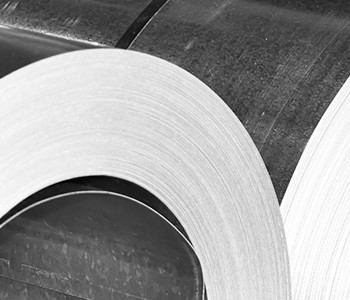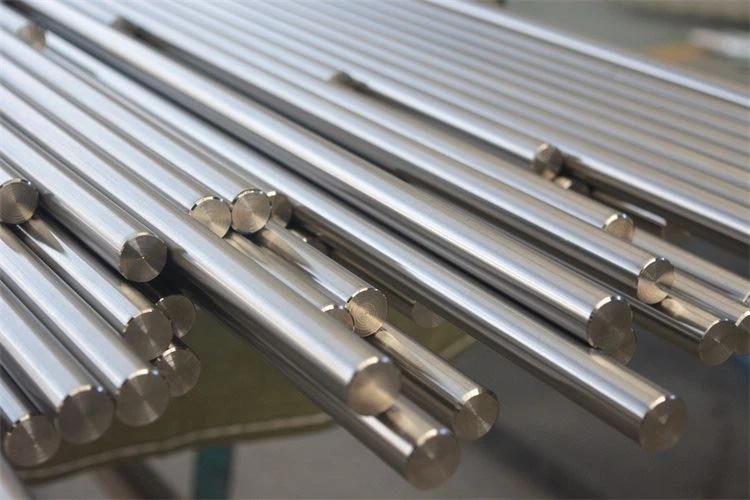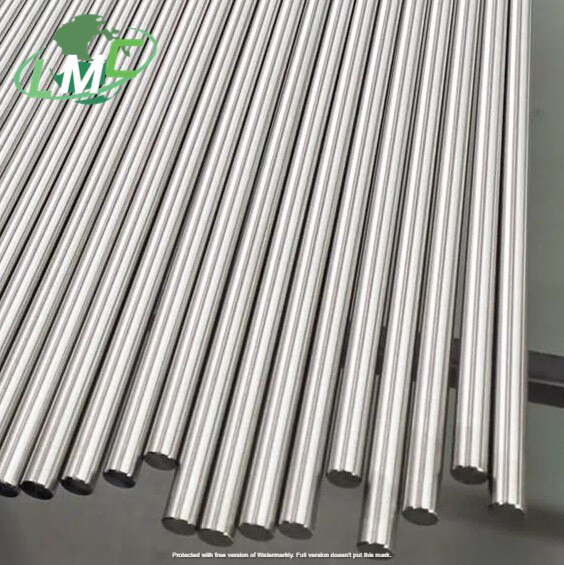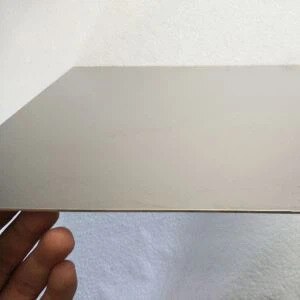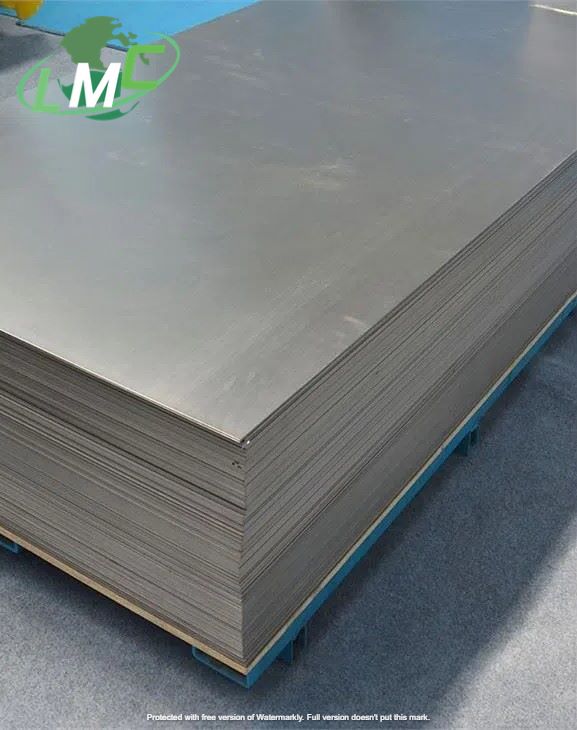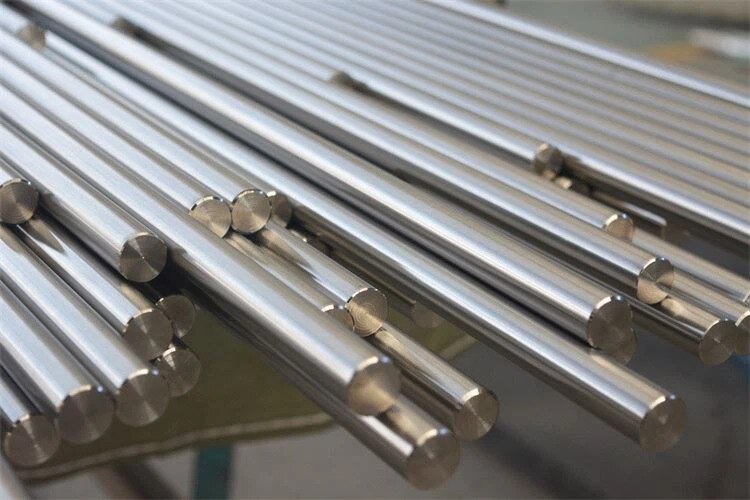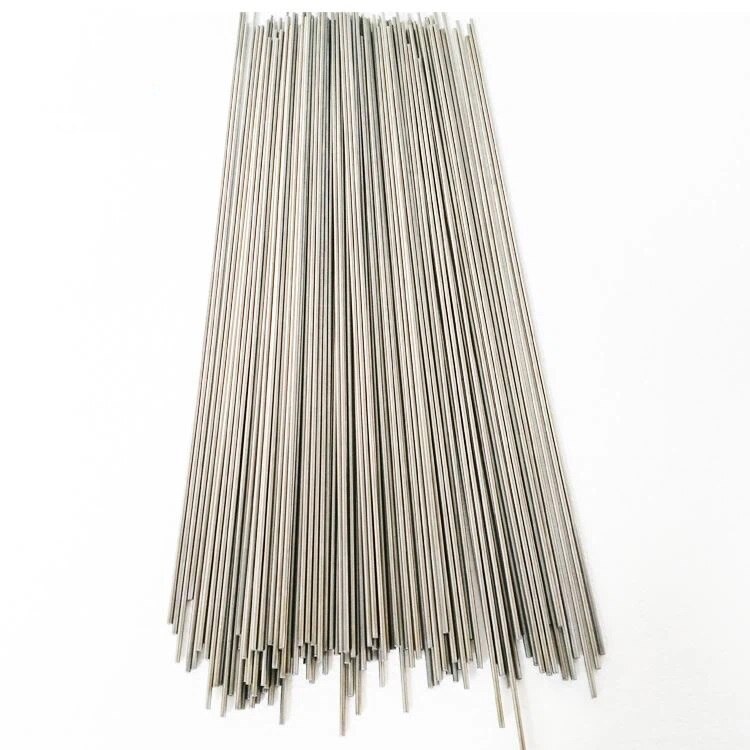Titanium – Aerospace Applications Titanium is used in engine applications such as rotors, compressor blades, hydraulic system components and nacelles. Titanium 6AL-4V alloy accounts for almost 50% of all alloys used in aircraft applications. Due to their high tensile strength to density ratio, high corrosion resistance, and ability to withstand moderately high temperatures without creeping, titanium alloys are used in aircraft, armor plating, naval ships, spacecraft, and missiles. For these applications titanium alloyed with aluminium, vanadium, and other elements is used for a variety of components including critical structural parts, fire walls, landing gear, exhaust ducts (helicopters), and hydraulic systems. In fact, about two thirds of all titanium metal produced is used in aircraft engines and frames. Titanium – Industrial Applications Titanium is used in engine applications such as rotors, compressor blades, hydraulic system components and nacelles. Titanium 6AL-4V alloy accounts for almost 50% of all alloys used in aircraft applications. Due to their high tensile strength to density ratio, high corrosion resistance, and ability to withstand moderately high temperatures without creeping, titanium alloys are used in aircraft, armor plating, naval ships, spacecraft, and missiles. For these applications titanium alloyed with aluminium, vanadium, and other elements is used for a variety of components including critical structural parts, fire walls, landing gear, exhaust ducts (helicopters), and hydraulic systems. In fact, about two thirds of all titanium metal produced is used in aircraft engines and frames. Titanium – Consumer and Architectural Applications Titanium metal is used in automotive applications, particularly in automobile or motorcycle racing, where weight reduction is critical while maintaining high strength and rigidity. Titanium is used in many sporting goods: tennis rackets, golf clubs, lacrosse stick shafts, cricket, hockey, lacrosse and football helmet grills, and bicycle frames and components. Titanium alloys are also used in spectacle frames. The two most common Titanium alloys used in the cycling industry are 6AL-4V (Grade 5) and 3AI-2.5V (Grade). These two different alloys are both high strength Titanium and are both fairly common in the Industry. Titanium – Medical Applications Because it is bio-compatible (non-toxic and is not rejected by the body), Titanium is used in different medical applications including surgical implements and implants, such as hip balls and sockets (joint replacement) that can stay in place for up to 20 years. Titanium has the inherent property to osseointegrate, enabling use in dental implants that can remain in place for over 30 years. This property is also useful for orthopedic implant applications. Titanium is also used for the surgical instruments used in image-guided surgery, as well as wheelchairs, crutches, and any other products where high strength and low weight are desirable. The unique qualities of titanium also prove to be MRI (Magnetic Resonance Imaging) and CT (Computed Tomography) compatible. Titanium Metals Titanium Specifications Titanium Grades Titanium Dioxide TiO2 Titanium Applications Titanium Sheets Titanium Plates Titanium Wire Titanium Tubes & Tubing Titanium Round Bar Titanium Pipe close Reques

